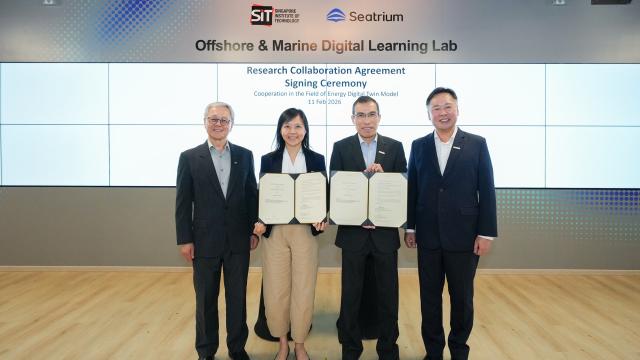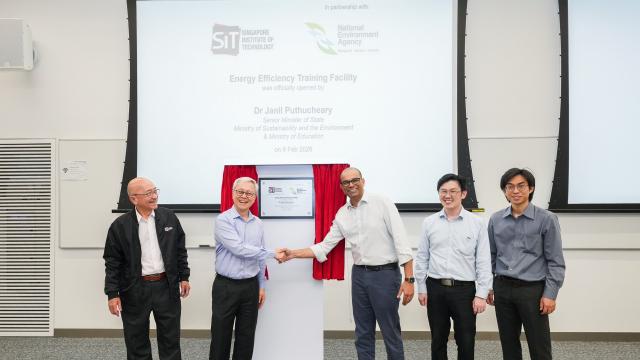The Integrated Work Study Programme gives students the opportunity to experience real work and brings them a step closer to their dream jobs.
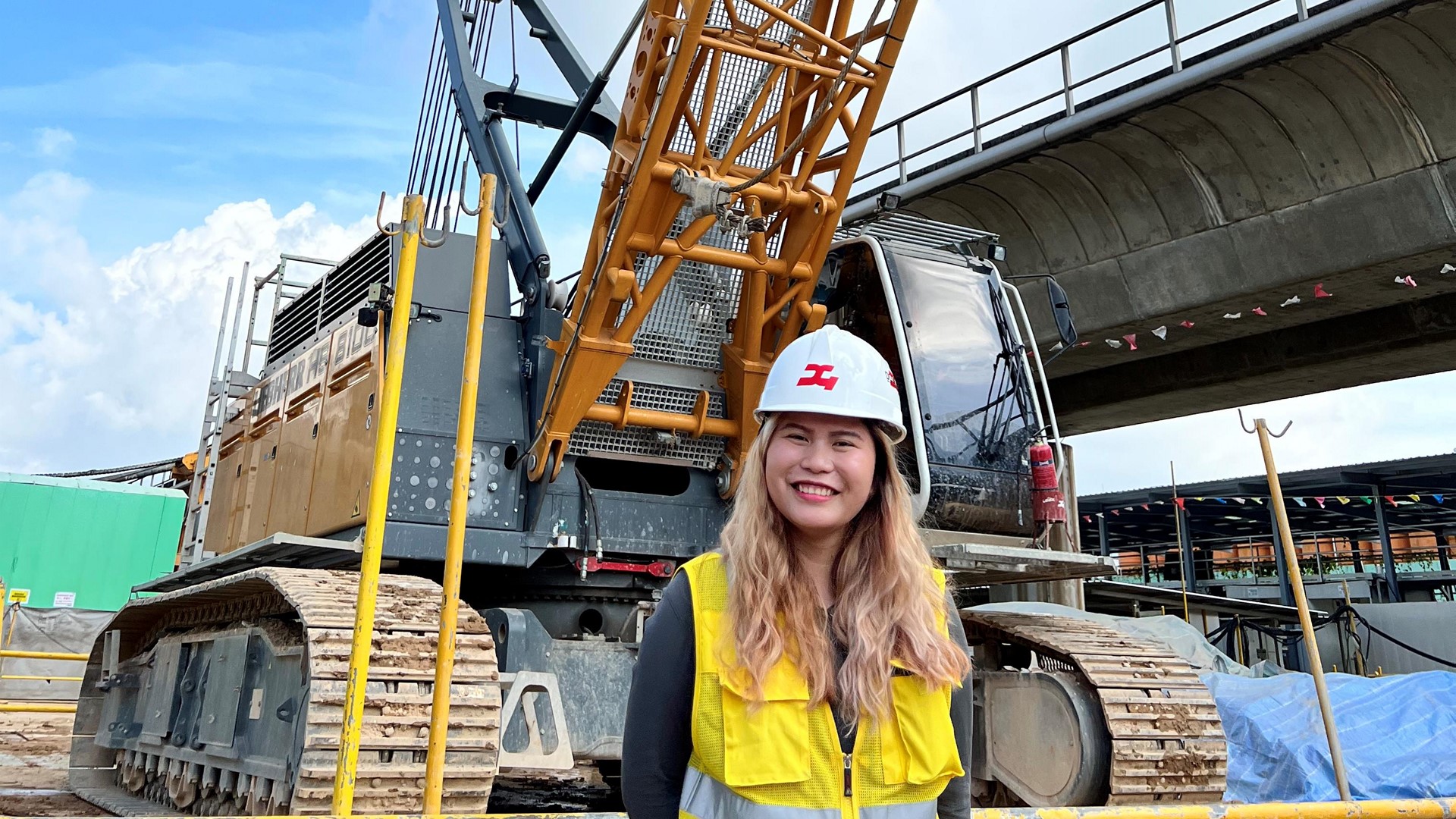
Civil Engineering graduate Nicole Eloise Luza Vale was offered full-time employment at Dongah Geological Engineering as a site engineer after completing her Integrated Work Study Programme (IWSP).
For eight months in 2020, Nicole Eloise Luza Vale worked as a technical executive at Dongah Geological Engineering, a Singapore construction company. She was attached to the tender department, where she liaised with suppliers, contractors and clients, and was part of the team that clinched the contract for the design and construction of the Cross Island Line’s Loyang Station, tunnels, and elevated structures.
Then a Civil Engineering student at the Singapore Institute of Technology (SIT), the experience was an eye-opener that allowed her to gain real-world experience and a deep understanding of the construction industry in Singapore.
“It was a great learning experience because I was given many opportunities to work independently and learn from experienced colleagues. I was treated as part of the team, and not just a student intern,” shared the 26-year-old, who also assisted with urgent site works.
Such work attachments are a distinctive feature and a compulsory component of SIT-conferred and SIT-joint degree programmes. Known as the Integrated Work Study Programme (IWSP), undergraduates are required to work in companies relevant to their field of study for up to 12 months.
The programme not only gives students the opportunity to experience real work in their respective industries, it also brings them a step closer to their dream jobs. Ms Yeo May-Fung, Director, Centre for Career Readiness, SIT said, “From 2018 to 2020, more than half of our graduates received advance offers from their IWSP companies. This is a positive showing, especially when we take into account factors such as market trends and unforeseen economic disruptors such as the COVID-19 pandemic.”
Nicole was offered full-time employment at Dongah at the end of her IWSP. She is now a site engineer there, after graduating in September last year.
Taking Industry Feedback on board
SIT maintains close ties with industry, and the IWSP was created with feedback from many of its industry partners.
Unlike most university internship programmes that run from 4 to 6 months, the IWSP is a longer work attachment that can last 6 to 12 months. It is also intentionally arranged towards the final year of one’s degree programme, to give students a smoother transition to working life.
“The feedback from industry was that they typically need about three months to train students. By lengthening our IWSP, students have more time to put into practice what they have learnt,” said Associate Professor Lim Kok Hwa, Director, Professional Officers Division, SIT.
“The work attachment period becomes a pseudo probation for students. Companies can assess them, and many of them receive full-time employment offers before they graduate.”
To help students adapt to working life, those on IWSP return to campus from time to time, to pick up work competencies such as communication skills and professional ethics.
Students are also assigned to an academic supervisor, who is either a Professional Officer (PO) or faculty staff from SIT, to mentor them through the IWSP. With many of them being industry veterans, POs and academic staff understand the workings of the industry and are able to help students bridge the gap between theory and practice.
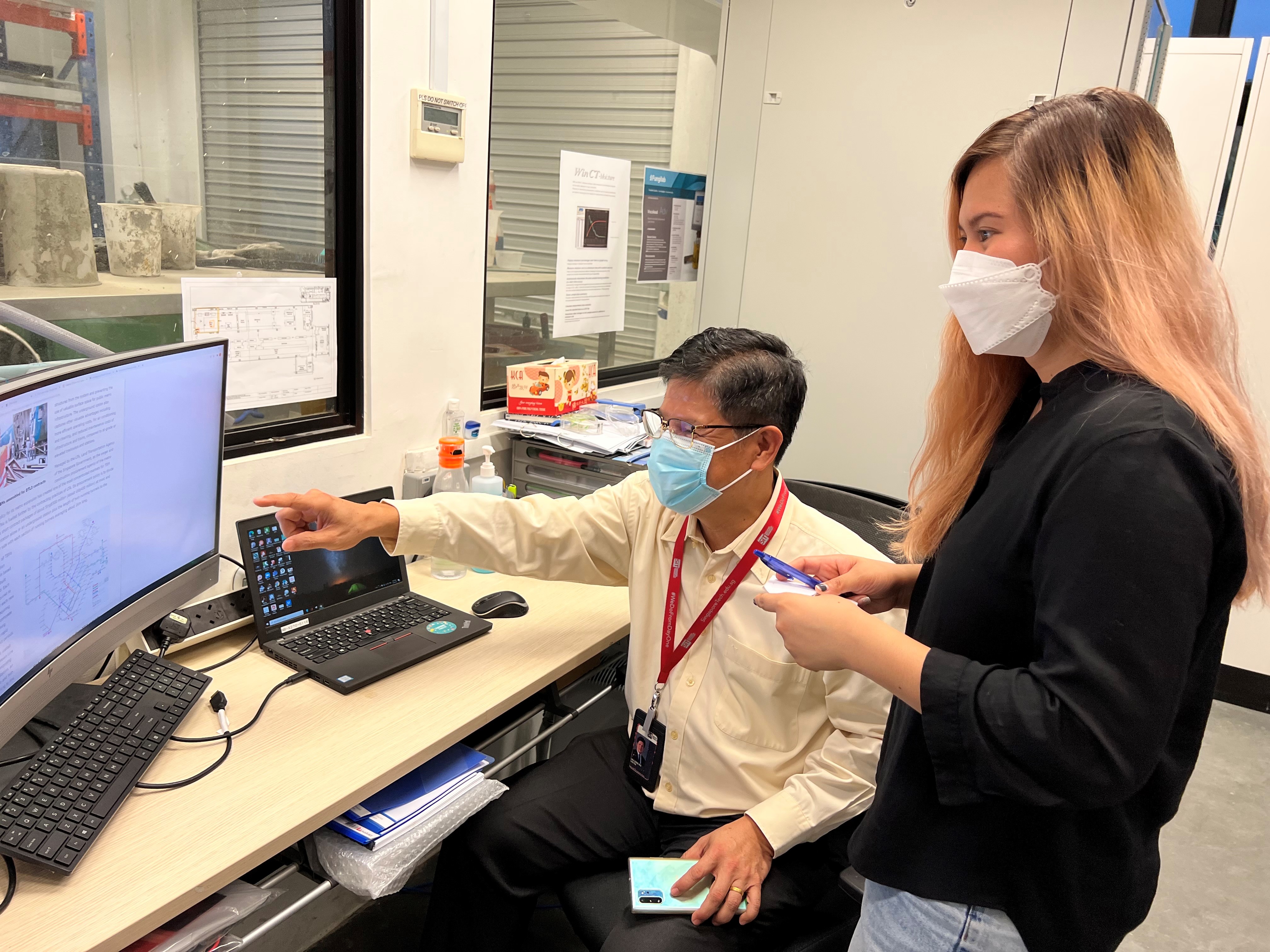
Nicole’s academic supervisor, Lead Professional Officer Siau King Ing, mentored her throughout the IWSP.
Nicole appreciated the frequent check-ins from her academic supervisor, Lead PO Siau King Ing. “He was from the industry and is familiar with its challenges, so he would advise me accordingly,” she said. She is currently pursuing a Master of Science in Civil Engineering at SIT.
With deep experience in the construction industry, Mr Siau, the module coordinator for the Civil Engineering programme’s IWSP, is well-versed on how the sector operates.
“Most of the time, students come to me with questions related to workplace and operational processes,” he said. “My advice to them is to seize every opportunity to learn as much as possible and understand why things are done in certain ways. I coach them to be proactive and see things from the big picture.”
Apart from mentoring students, he also assists with the Civil Engineering programme’s capstone project, one which is strategically tied to the IWSP. Students identify areas that can be improved in their workplace and work on a solution. Said Mr Siau, “We structured the capstone project this way as we want them to work on topics that are closely related to the industry.”
IWSP in a Pandemic Era
While the ongoing pandemic caused unexpected disruptions for the IWSP in certain sectors, POs were quick to rebound.
In 2020, when nearly half of Hospitality Business students had their IWSP disrupted due to the COVID-19 pandemic, academic staff from the programme hatched an idea: approach industry partners for problem statements that students could use for their ‘Innovation Project’. Students presented their proposals to companies, with some companies even requesting for their prototypes.
For example, a food wastage project at Marina Bay Sands was re-worked to ‘A Participatory Approach to Reduce Packaging in Hotels’ as restaurants were closed due to the Circuit Breaker. Students proposed new ways to reduce packaging in hotel rooms, as it was aligned to Marina Bay Sands’ sustainability efforts.
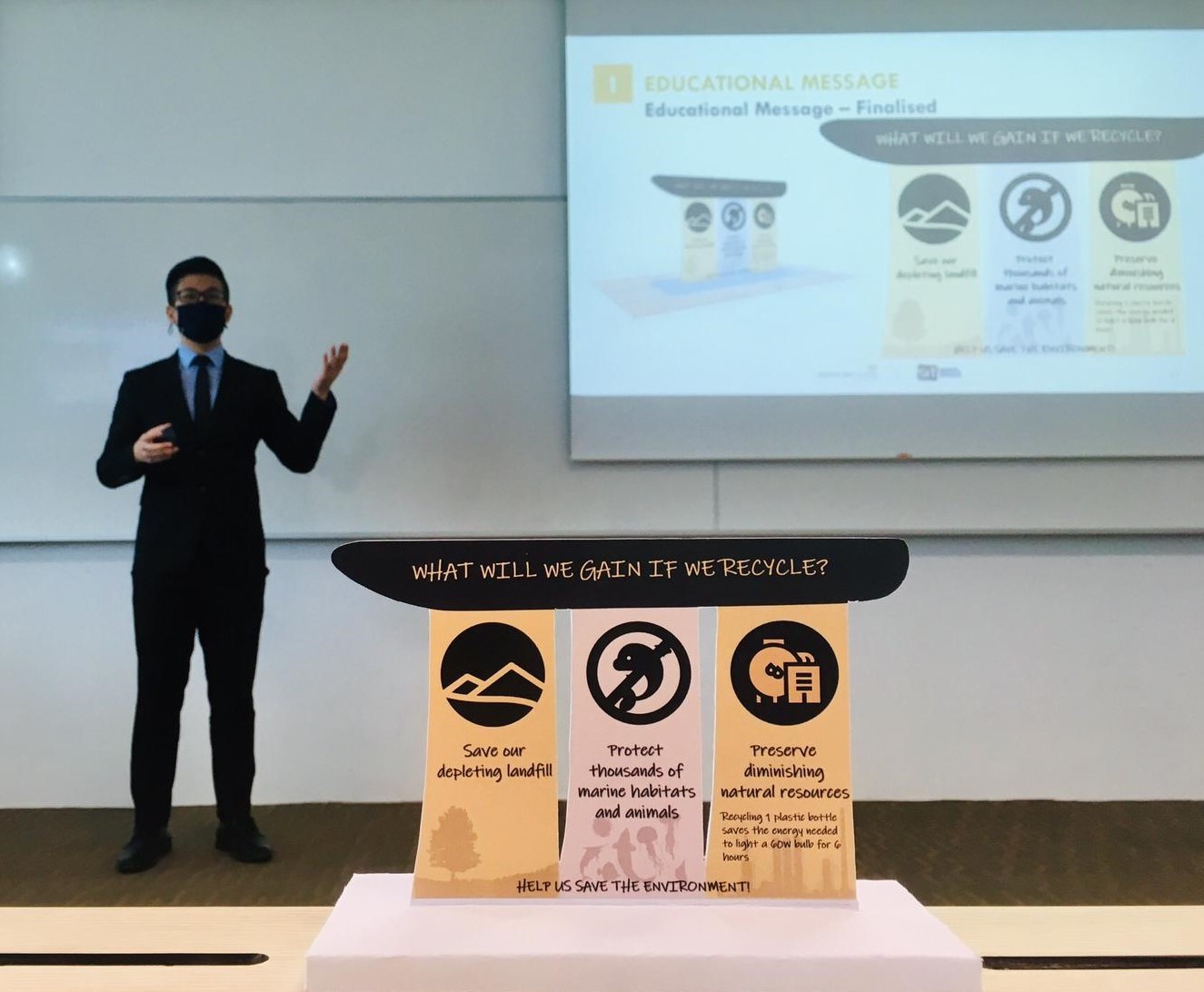
Hospitality Business graduate Low Wei Jie presenting his team’s Innovation Project ‘A Participatory Approach to Reduce Packaging in Hotels’ to Marina Bay Sands in 2021.
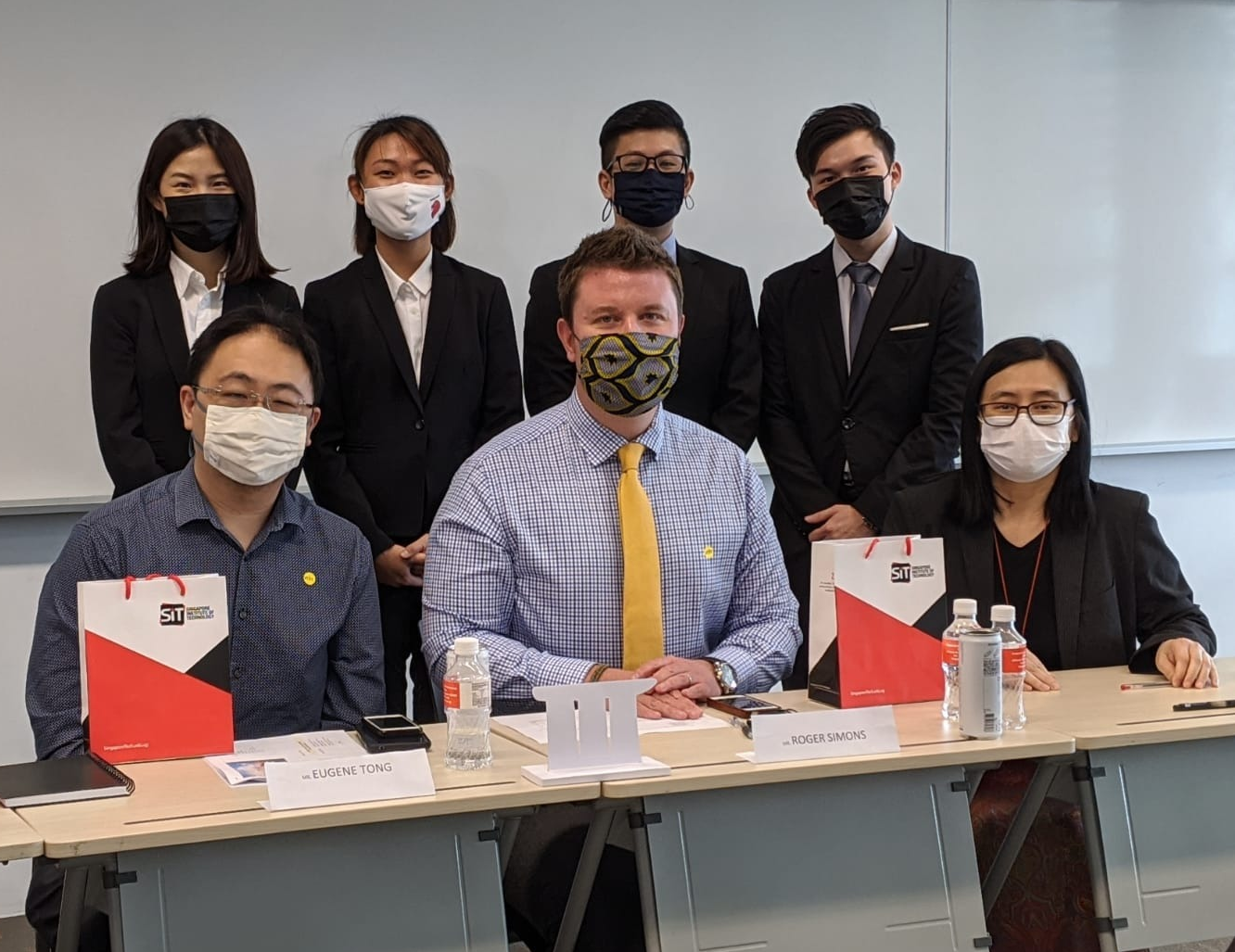
Clockwise (seated from right): The SIT student team behind the Innovation Project ‘A Participatory Approach to Reduce Packaging in Hotels; Lead Professional Officer Emily Woo; representatives from the Sustainability team at Marina Bay Sands Mr Roger Simons, Director of Sustainability; and Mr Eugene Tong, Senior Manager.
“The hospitality industry has been undergoing massive changes due to the pandemic, from the rise in staycations and virtual events, to different requirements in managing events for hotels and MICE,” said Lead PO Emily Woo. “We wanted to make sure that our students continue to acquire the necessary skills from the industry and teach them how to bounce back in these challenging circumstances,” said Ms Woo.
For students who managed to land an IWSP position, they found themselves working remotely and navigating the new normal. Hospitality Business student Tiffany Chan, 23, decided to make the most out of her experience with an events management company. She learned to organise virtual events, helped to create event collaterals, developed event websites, and wrote post-event reports for clients and sponsors.
“The biggest takeaway from my IWSP experience was being part of the new era in transitioning to virtual events,” she said.
But things have been improving. Tourism around the world is showing signs of recovery.
“This year, we are seeing an uptick in the number of organisations offering full time positions to our students,” Ms Woo said. “Joining the hospitality sector now gives students an exciting chance to have a hand in its transformation and ready them for future challenges.”















![[FA] SIT One SITizen Alumni Initiative_Web banner_1244px x 688px.jpg](/foodplant/openhouse/sit-teaching-and-learning-academy/directory/centre-professional-communication/centre-professional-communication/sites/default/files/2024-12/%5BFA%5D%20%20SIT%20One%20SITizen%20Alumni%20Initiative_Web%20banner_1244px%20x%20688px.jpg)
